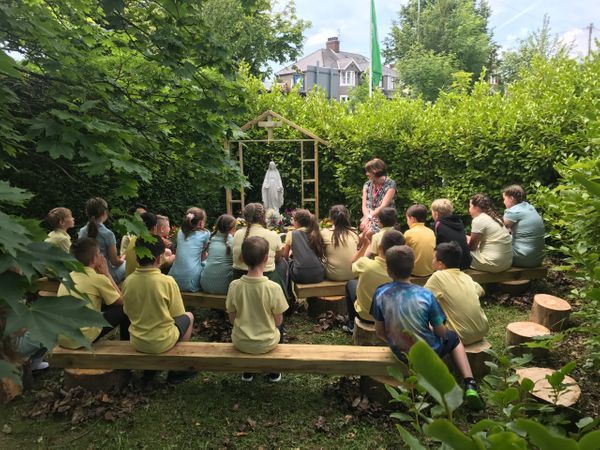How does outdoor play help a child’s development?

We are all conditioned to see the value of time spent outdoors. From being small children we’re told that a bit of ‘fresh air’ will ‘do us good’, or ‘tire the children out’. But what is the true value of outdoor play? In this blog post, we explore the impact that outdoor play can have on a child’s physical, social, mental, and emotional wellbeing.
The purpose of outdoor play
Outdoor play is crucial for young children for two crucial reasons. The first is the learning of certain developmental tasks. These include fine and gross motor skill development, exploring, absorbing basic knowledge, and risk-taking.
The second is based on the changing realities of our culture. Where outdoor play was once the primary source of play for our grandparents’ generation, today’s culture minimises children’s opportunities for outdoor play, both through the games and entertainment sources enabled by screens and the fear-mongering, and realities, of unsafe neighbourhoods (through traffic or social factors), lack of outdoor time at school, and busy, tired parents.
The benefits of outdoor play for a child’s emotional development
Outdoor play has been shown to have a plethora of positive outcomes for kids. An outcome you may not have considered is the emotional development that outdoor play can support.
Outdoor play generally provides for more adventurous, physical, and imagination-inducing play. These factors in turn encourage the development of a child’s independence, self-esteem, and self-confidence and encourage them to understand challenges, limits, and boundaries.
Boosts to emotional wellbeing include:
- Engaging with other children
- Problem-solving
- Trying out new activities
- Showing resilience
- Exploring and learning to love nature
The health benefits of outdoor play
We all know from personal experience that spending all day in front of a screen isn’t good for us, physically or mentally. It’s so easy to engage in sedentary behaviours with kids, allowing plentiful screen time be that on the TV or with games. But as well as the boost to mental wellbeing, being outside provides a much-needed to boost to their physical wellbeing too.
Children who play outside integrate movement into their daily lives and free time, laying the foundations for an easily active lifestyle. Higher physical activity levels, in other words, getting regular exercise through play, has been shown to reduce the occurrence of obesity, type 2 diabetes, cancer, and heart disease in children.
The health benefits of outdoor play:
- Running games develop stamina, agility, and physical fitness.
- Jumping aids the development of larger muscle groups, balance and stability, and bone density.
- Climbing can develop balance, coordination, and strength.
Outdoor play ideas for all weathers
Outdoor play can feel easier to encourage on dry, temperate days. But getting outdoors can do us good, whatever the weather. Outdoor play equipment is the perfect temptation to get kids out in most weathers, but there is always something to do in the great outdoors, whatever the weather. Here are some ideas for more inclement weather:
Rain (get your waterproofs and wellies out – or strip off, after all, skin is waterproof!):
Jump into or over puddles, outdoor swimming (water is said to feel warmer to get into when it’s raining!), make mud pies
Wind:
Fly a kite, play with windmills or streamers
Hot sun (get a hat and slap that SPF on, constantly reapplying):
Fill the paddling pool, water luge, sprinkler hopping, limbo, hopscotch
Snow (wrap up warm and get those waterproof gloves and boots out!):
Go sledging, build a snowman, make snow angels
Here at Landscapes for Learning, we understand the value of encouraging outdoor play in children. Let us help you to design an outdoor play environment that stimulates your children’s every need, whether that’s firing up their imaginations or helping them burn off some of that extra energy!
